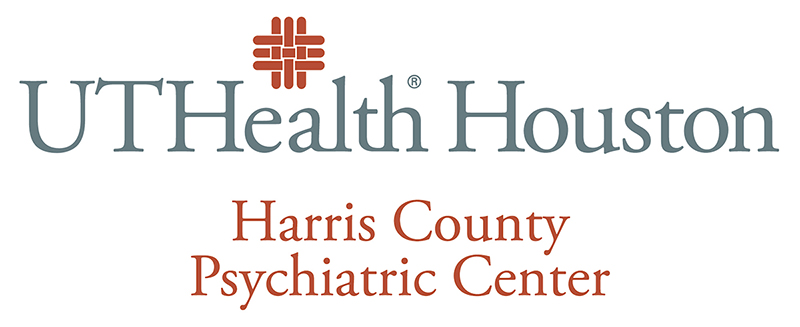UTHealth Houston Harris County Psychiatric Center
Panic Disorders
Causes • Signs & Symptoms • Related Conditions • Treatments • Living with Panic Disorder • How Family & Friends Can Help
Panic disorder, one in the family of anxiety disorders, is different from normal anxiety. While other anxiety disorders cause ongoing feelings of fear of impending doom, panic disorder is marked by sudden, unexpected attacks of intense terror. Panic attacks can occur at any time, distinguishing them from the natural reaction to real danger.
Some symptoms of the illness are common not only to other mental disorders but to minor physical ailments as well. Therefore, panic disorder can be difficult to recognize, and many sufferers go untreated. But treatment is available, and it's the only way to beat the disorder.
As with other mental illnesses, panic disorder is believed to be caused by both chemical imbalances in the brain and genetic predisposition. Panic disorder can afflict people after age 18, irrespective of race or gender. Researchers are also examining environmental triggers. For many, panic attacks occur when there is no apparent danger or outside of periods of normal stress, and it is believed that certain traumatic events can give rise to panic disorder.
People who suffer from panic disorder will have sudden, unexpected episodes of intense terror that include several of the following physical symptoms:
- Trembling
- Tingling or numbness
- Nausea or stomach aches
- Racing heartbeat or heart palpitations
- Chest pressure or discomfort
- Choking sensation
- Hyperventilation or difficulty breathing
- Hot or cold flashes
- Dizziness or faintness
- Excessive sweating
- Derealization
- Fear of dying
During a panic attack victims might have the urge to flee but are too scared to move. They might fear they are having a heart attack or stroke, that they are going crazy or losing control, or that they are going to die.
Panic disorder often has a dramatic impact on victims' lives and gives rise to other mental illnesses and negative behaviors. Victims might begin to avoid places or circumstances where panic attacks have occurred, thinking that these might have caused their attacks. This leads to a phobic avoidance of these places or circumstances.
Panic attacks are difficult to endure. Because they can happen at any time, victims cannot necessarily prepare themselves. This fear of going through another attack can lead to anticipatory anxiety.
Often panic disorder victims retreat into a life of isolation, too afraid even to leave their own homes. Ultimately, this makes normal living impossible.
And in many cases another common disorder occurs in depression.
Because so many of the physical symptoms are common to other mental and medical conditions, choosing a physician is a very important step in seeking treatment for panic disorder. A psychiatrist is a specialist who understands mental illnesses, who can make an appropriate diagnosis and who can prescribe a proper treatment and is probably the best choice. A proper diagnosis in the beginning can eliminate ineffective treatments and patient frustration. The most effective treatments usually include medication, cognitive and behavioral therapy, or a combination of these.
Medication helps level the chemical imbalances in the brain. Some prescriptions that have proven effective are tricyclic antidepressants, MAO inhibitors and benzodiazepines. These help prevent attacks or reduce their frequency and severity.
Cognitive and behavior therapies are designed to change the way a person thinks and acts. Cognitive therapy involves helping patients understand how their thinking patterns contribute to their symptoms and how to change their thoughts to reduce or prevent the symptoms. In behavioral therapy, psychiatrists expose patients to the feared place or situation on a gradual basis, teaching them to use relaxation exercises, until the fear is reduced or eliminated.
Group therapy brings patients together to share experiences and draw support from one another. Many patients respond well to treatment, and the success rates among those who receive treatment is often very high, allowing patients to return to productive, fulfilling lives.
When panic disorder strikes, it reaches far beyond its victims. Family members, friends, co-workers and many others suffer as well. But family and friends can potentially be the best help for victims.
Dealing with a relative or friend with panic disorder can be stressful. Family and friends can find emotional support, understanding and hope from outreach, education and advocacy groups.
How Family and Friends Can Help
One of the greatest helps to a friend or loved one with a disorder is emotional support. Family and friends should sincerely listen to the person with the disorder, offering reassurance. They can help the person become involved in his or her own treatment. They can be the rational, stable support in the difficult and frustrating times.
Dealing with a relative or friend with panic disorder can be stressful. Family and friends can find emotional support, understanding and hope from outreach, education and advocacy groups


